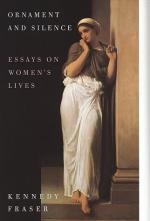|
This section contains 873 words (approx. 3 pages at 300 words per page) |

|
SOURCE: “Blast from the Past,” in Commentary, Vol. 108, No. 2, September, 1999, pp. 65-6.
In the following review, McCracken offers a summary of Greer's “so-called” arguments in The Whole Woman.
Three decades ago, the English writer Germaine Greer erupted into the world with The Female Eunuch, a cleverly titled book whose core argument, as she recently summarized it, was that “every girl child is conceived as a whole woman but from the time of her birth to her death she is progressively disabled.” As summary, that is accurate enough, but it fails to capture the qualities in the book that provoked such a remarkable mixture of admiration and outrage when it was published. The radical, erudite, witty Greer was then, as she is now, a sui-generis feminist—mutatis mutandis, a kind of Camille Paglia of the 70's.
Greer has been reasonably prolific over the past 30 years, but other authors have...
|
This section contains 873 words (approx. 3 pages at 300 words per page) |

|


